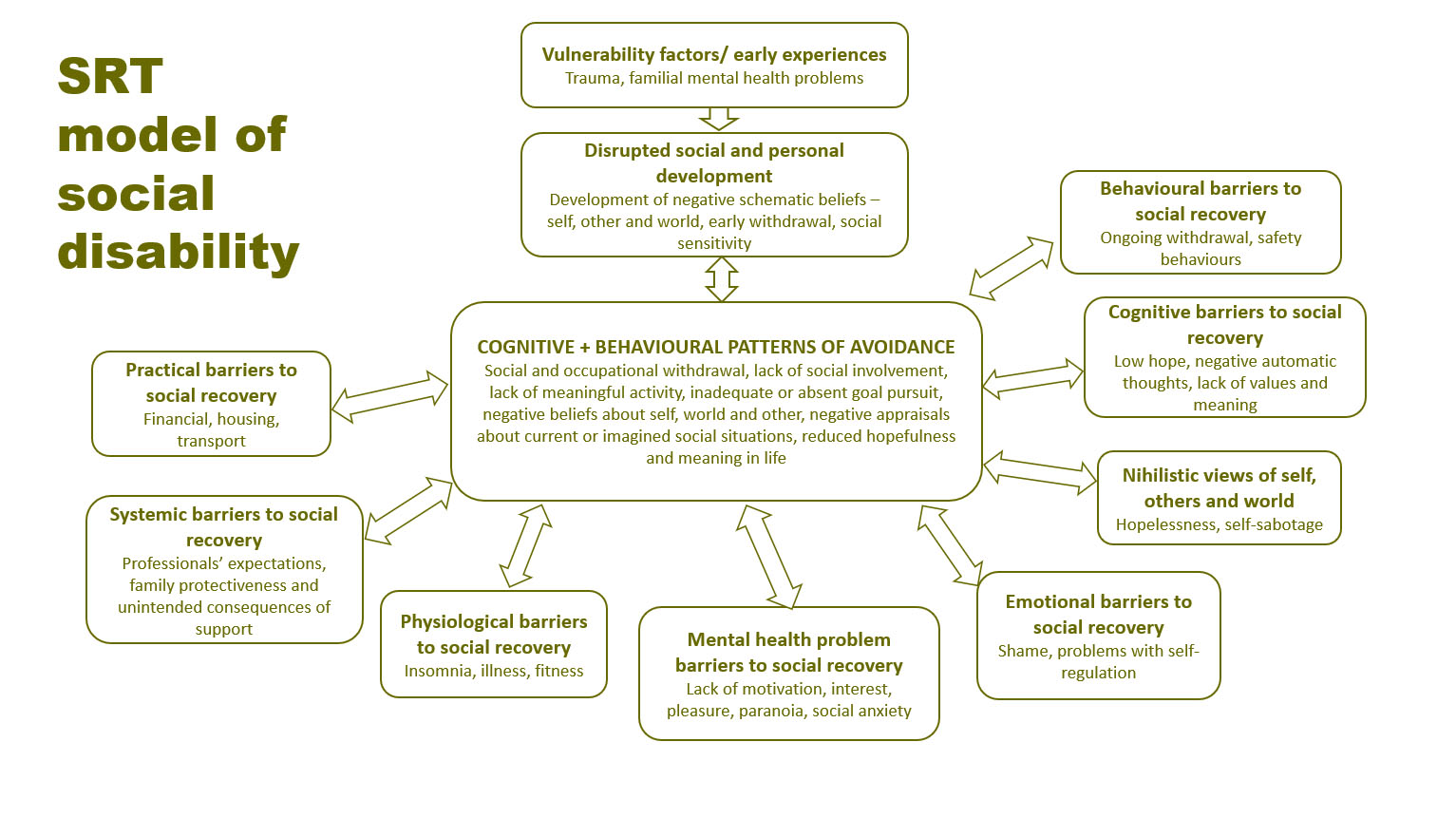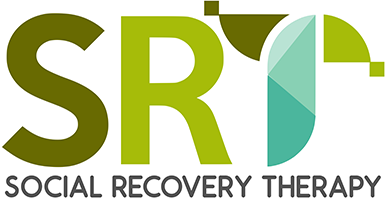Social Recovery Therapy or SRT…
is an individual psychological intervention developed by Professor David Fowler and colleagues (TEAM PAGE), with support and involvement from the National Institute for Health Research, the Medical Research Council, the University of East Anglia, the University of Sussex, Greater Manchester Mental Health NHS Foundation Trust, Sussex Partnership, NHS Foundation Trust, Norfolk and Suffolk NHS Foundation Trust, and many other organisations and individuals. SRT has its foundations in clinical practice and has been refined through large scale research projects in youth mental health and psychosis (RESEARCH PAGE). The foundation of SRT is that social disability is itself an index of severity. Social disability is both an important way to identify people who are at risk of developing serious, complex and enduring mental health problems and, where co-present with emerging psychological difficulties, is a clear risk factor for enduring and worsening mental health problems.
Our theoretical model suggests that social disability represents functional behavioural patterns of social and occupational withdrawal and avoidance. These functional behavioural patterns are developed in response to early socio-emotional difficulties which are maintained by a lack of hopefulness, self-agency and motivation and multi-systemic barriers to social recovery. Social disability is defined with respect to time spent in structured activity per week READ MORE

Structured activity includes:
- Paid and voluntary employment
- Education and training
- Childcare
- Housework and chores
- Structured sports and leisure activities
Structured activity is robustly linked to better mental health and wellbeing. Reductions in structured activity are often noticeable for people experiencing complex emerging mental health problems, both before the onset of such problems and often during and after their course. Less than 30 hours of structured activity per week is considered a threshold for social disability and less than 15 hours per week is considered to reflect serious social disability.
The ethos of SRT is therefore to promote social recovery through increased time spent in structured activities which are meaningful to the individual. Social recovery is both personally valuable and important in its own right as well as facilitative of better mental health outcomes.

